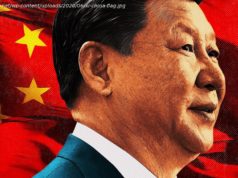Didi is moving its stock listing to Hong Kong, heralding more departures as Beijing ramps up scrutiny of China’s corporate sector.
When the Chinese ride-hailing giant Didi Chuxing decided to delist its shares in the United States, it was an abrupt reversal that illustrated the growing rift between Wall Street and China’s rapidly growing corporate sector. Barely six months ago, Didi had been the latest Chinese start-up darling to go public on the New York Stock Exchange, following the path of such companies as Alibaba and Baidu to list its shares in the world’s premier financial hub. Now Didi’s move to relocate its listing to the Hong Kong stock exchange almost certainly heralds more departures, and few other Chinese start-ups are likely to pursue an I.P.O. in the United States any time soon. Combined with banks’ growing footprint in China and Beijing’s increasing control over Hong Kong, it adds up to a simple truth: American investors will still have little trouble handing over their money to Chinese companies, but it will have to be on China’s terms. “I don’t think the access to China has changed at all,” said Ben Emons, managing director of global macro strategy at Medley Global Advisors. American investors, he said, will just be subject to Chinese financial regulation — and many companies are undeterred by Beijing’s trade and financial policies. “It could be a risk,” he said. “But that’s investing.” The fine line that Wall Street power players will have to walk has been clear over the past month: Jamie Dimon, the chief executive of JPMorgan Chase, the country’s largest bank, and Ray Dalio, the billionaire founder of Bridgewater Associates, the world’s largest hedge fund, both walked back comments about China. Mr. Dimon said he regretted a quip that JPMorgan would outlive China’s Communist Party, and Mr. Dalio sought to clarify his support for human rights after he initially likened China’s approach to that of a “strict parent.” Chinese companies and American investors have long seen the other’s allure: Investors envisioned fortunes to be made from China’s rapid economic growth, and companies coveted the deep pockets and cachet of overseas investors. But the long, uneasy trade relationship soured badly in recent years. The Trump administration accused China of unfair trade policies and claimed that the mobile giant Huawei was stealing technology from Western rivals. At the start of this year, China Telecom, China Unicom and China Mobile were delisted by the N.Y.S.E. to comply with an executive order that barred Americans from investing in companies with ties to the Chinese military. At the same time, U.S. regulators have grown increasingly worried about methods Chinese companies use to list themselves in the United States.
Home
United States
USA — China With Didi Leaving Wall Street, Trading Edges Closer to Beijing’s Thumb






